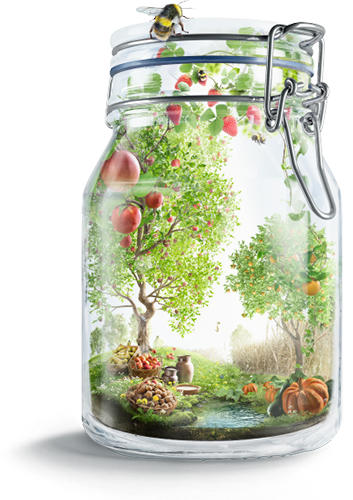The formative years 1936-1972
-
1936-1939
The birth of milk powder, substitute
1936-1939The birth of milk powder, substitute
The roots of substitute infant nutrition in Czechoslovakia dates back to 1936, which significantly contributed to the reduction of infant mortality. This was the birth of the product which would eventually become known as Sunar.
The Spanish Civil War, from 1936 to 1939, followed by World War II led to little investment taking place over a 10-year period at Hero Alcantarilla (Hero Spain). In 1938, Hero Benelux introduced Cassis to the market – it is considered as Dutch as clogs and still commands a considerable market share today. Hero’s Cassis is considered the original.
A year later, in 1939, Svenska Mjölkprodukter AB (SMP), later renamed Semper, was founded by Swedish entrepreneur Axel Wenner-Gren. The production of the first milk powder plant in Sweden/ Kimstad started in September that same year.
-
1939-1945
Turbulent times
1939-1945Turbulent times
During the war years, between 1939 and 1945, Schwartau continued production without interruption. Beech-Nut was the largest producer of ‘K’ rations for soldiers serving in Europe and Asia. Many products were discontinued at this time due to shortages, which also affected Hero Switzerland. To ensure that supplies continued, Swiss housewives were encouraged to wash and return empty containers for re-use. Due to sugar rationing, Hero developed a conserve with less sugar and a higher fruit content, creating one of Hero’s most popular brands – Hero Delicia.
Semper built a new factory in Götene with production starting in 1942, the same year Hero co-founder Gustav Henckell passed away.
-
1945-1949
The post-war period
1945-1949The post-war period
After the end of the Second World War, the Allies grant the Schwartau factories a license to produce jam, tinned food, sweets and marzipan, and 360 employees start afresh. In 1945, the influence of the Oetker family increases with 100% of the shares held by siblings Rudolf-August and Ursula Oetker, mother of Dr Arend Oetker.
BabySemp is launched as the world’s first completely manufactured infant formula in 1948. The development of bakery products also contributes to establish Semper as a research-based and innovative company. In the same year, Hero Switzerland launched a new product: tinned ravioli.
-
1950-1959
The baby-boom era
1950-1959The baby-boom era
Sunar got its name in the 1950s by combining the words Sušené národní, meaning Dried National, which proves its great importance for the healthy development of the whole nation of Czechoslovakia.
The post war Baby Boom makes itself felt in the early 1950s and the demand for baby food increased substantially in the US. Beech-Nut differentiated its baby food by packing the strained fruits, vegetables, and meats exclusively in glass jars rather than cans.
By 1958, Schwartau’s workforce reached 1,000 and a year later, it became a limited liability company, assuming the official name of Schwartauer Werke GmbH & Co KG.
-
1960-1967
The swinging sixties
1960-1967The swinging sixties
By 1960, Beech-Nut became the second best-selling brand in the US. Beech-Nut Life Savers sales climbed to almost $120 million. Providing about a third of sales was Beech-Nut’s baby food.
A group of 30 people in the horticultural field in Italy form the company LIDO (Lavorazione Industriale degli Ortofrutticoli – Industrial Horticultural Production) in 1960. This is the precursor to Hero Italy.
Semper starts selling baby food in jars in the 1960s. In the same period, half of the company is sold to the unions. The name is also changed to Semper AB in 1963. Schwartau Extra is introduced in 1962 while Hero Benelux launched Fruit Ontbijt, or ‘breakfast in a bottle’, to the Dutch market in 1966.
-
1968-1972
Convenience increases in popularity
1968-1972Convenience increases in popularity
Convenience products become ever more popular. They are quick to prepare and reflect the development of society. Hero latches onto this trend and launches ready-to-eat tinned rösti in 1968. A few years later, Hero becomes the first company on the Swiss market to offer rösti in an aluminized plastic pack, followed by convenience-packaged salads and salad dressing.
Hero acquired a majority holding (50.1%) of the company LIDO in 1970. The company then changes name to Hero Verona SpA. Two years later, Hero takes over the whole company, which becomes Hero Italia.
On March 1, 1972, the name Hero Alcantarilla was changed to Hero Spain to give the company a more nationwide scope.






